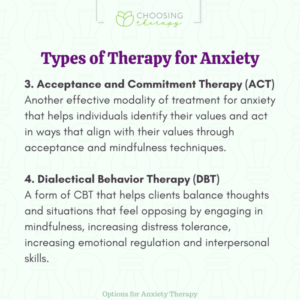
Welcome to the wild world of allergic reactions, where the only thing more unpredictable than a sneeze attack is the person who just ate a peanut butter sandwich in the same room! Allergies are like that quirky friend who shows up to every party uninvited, making everyone a bit uncomfortable. Understanding the physiological shenanigans behind these reactions can help you recognize those sneaky symptoms, which can range from the mildly annoying to the dramatically dramatic across all age groups.
From pollen that sends you on a nose-blowing spree to pets that turn you into a walking itch machine, knowing your allergens is crucial. We’ll also explore how these pesky reactions can mess with your fitness routine, trigger acne flare-ups, and how acupuncture might just be the unexpected hero in your allergy saga.
Understanding Allergic Reactions
Allergic reactions are like your body’s overzealous bouncers, kicking out innocent guests (substances) from the party that are actually harmless. When the immune system mistakenly identifies a benign substance as a threat, it goes into overdrive, causing a cascade of physiological shenanigans. Understanding these reactions is not only crucial for those with allergies but also for anyone who enjoys the company of pollen, peanuts, or pet dander.
Allergic reactions stem from the immune system’s response to allergens, which are typically harmless substances. When someone with allergies encounters an allergen, their immune system produces Immunoglobulin E (IgE) antibodies, which bind to mast cells and basophils. Upon subsequent exposure to the same allergen, these cells release histamines and other chemicals, causing the well-known symptoms of allergic reactions. The entire process resembles a poorly organized fire drill, where the alarms go off, and chaos ensues despite there being no fire!
Common Allergens and Their Effects
Common allergens can be as sneaky as a cat burglar, often hiding in plain sight. Here’s a look at some of the usual suspects and how they can wreak havoc on your body:
- Pollen: This airborne intruder is the bane of springtime. It can trigger hay fever, leading to sneezing, nasal congestion, and itchy eyes, making you feel like a walking sneeze machine.
- Dust Mites: These minuscule critters are like the unwelcome guests that never leave. They thrive in bedding and upholstery, causing respiratory issues and skin irritations.
- Food Allergens: Common culprits include peanuts, tree nuts, shellfish, and dairy. Symptoms can range from mild hives to severe anaphylaxis, which can sometimes feel as dramatic as a scene from an action movie.
- Pet Dander: While Fido and Fluffy provide endless love, their dander can trigger sneezing fits and itchy skin, making some people feel like they’ve entered a feline or canine sneeze fest.
- Insect Stings: Bee and wasp stings can lead to local swelling or a full-blown allergic reaction, often leaving individuals feeling like they just survived a nature documentary gone wrong.
Understanding these allergens helps in both prevention and management of allergic reactions, as knowing your enemy is half the battle!
Symptoms and Signs of Allergic Reactions
Allergic reactions can manifest differently across various age groups, showcasing the immune system’s dramatic flair. Here’s how allergic symptoms can vary by age:
- Infants: Common symptoms include skin rashes (such as eczema), fussiness, and gastrointestinal issues like vomiting or diarrhea. Picture a tiny human who just can’t handle their food choices!
- Children: They may exhibit symptoms like sneezing, runny nose, and itchy skin. Allergies can also lead to asthma in children, turning a simple game of tag into a sprinting marathon, punctuated by wheezing.
- Adults: Symptoms often present as nasal congestion, itchy eyes, and hives. Adults might also experience the thrill of anaphylaxis, which can transform an ordinary meal into a life-altering event, complete with an adrenaline rush (and not the good kind).
- Older Adults: Symptoms can resemble those in younger adults but may also include increased respiratory issues and more severe reactions due to age-related changes in the immune system. They might feel like they’re participating in a game of allergy roulette!
In conclusion, recognizing the signs and symptoms of allergic reactions across different age groups is essential for timely responses, effective management, and keeping the party going without any unwanted drama.
Relationship Between Allergies and Other Health Topics
Allergies are more than just an occasional sneeze or itchy eyes; they can have a ripple effect on various aspects of health and fitness. From gym routines to skin clarity, understanding the interconnections can empower individuals to navigate their health journeys with a bit more finesse and flair. So, let’s dive into how allergies shape our overall well-being and lifestyle choices!
Influence of Allergies on Health and Fitness Routines
When it comes to staying fit, allergies can turn a simple jog into an obstacle course. Those who suffer from pollen allergies, for instance, may find outdoor exercises more akin to a sneeze marathon than a refreshing run. It’s important to be mindful of these factors while planning fitness routines. Here are some key considerations for allergy sufferers:
- Timing is Everything: Exercise in the early morning or after rain when pollen levels are typically lower.
- Indoor Alternatives: Consider yoga or home workouts to bypass outdoor allergens altogether.
- Allergy-Friendly Gear: Invest in face masks designed for allergens or air purifiers for indoor spaces to maintain optimal air quality.
- Hydration and Nutrition: Staying hydrated can help flush out allergens from the body, while a balanced diet may strengthen your immune system.
Connection Between Allergic Reactions and Acne Flare-Ups
Allergies have a sneaky way of making their presence known, and sometimes they manifest as unwelcome visitors on your skin—hello, acne flare-ups! Allergic reactions can trigger inflammation, leading to breakouts that can leave one feeling self-conscious. The connection is often overlooked, yet understanding it can lead to clearer skin and happier days. Consider the following insights about allergies and acne:
- Food Allergies: Common allergens like dairy or gluten can contribute to skin irritation and acne breakout.
- Environmental Factors: Dust mites and pet dander can irritate the skin and exacerbate acne conditions.
- Stress and Allergies: The stress of dealing with allergies can lead to hormonal fluctuations that contribute to acne.
- Skincare Products: Some individuals may experience allergic reactions to ingredients in skincare products, resulting in acne-like symptoms.
The Role of Acupuncture in Managing Allergy Symptoms
Acupuncture, the ancient art of sticking needles into specific points to achieve balance and health, has been gaining traction as a viable method for managing allergy symptoms. While it may sound like a scene from a quirky comedy, many individuals swear by its effectiveness. This holistic approach taps into the body’s natural healing mechanisms, which can be particularly beneficial for allergy sufferers.Here are some remarkable insights on acupuncture regarding allergies:
- Histamine Regulation: Acupuncture can help to regulate histamine levels, reducing the severity of allergic reactions.
- Boosting Immunity: Sessions may help enhance the body’s immune response, making it less reactive to allergens.
- Reducing Inflammation: This technique can alleviate inflammation in the nasal passages, providing relief from congestion.
- Holistic Benefits: Beyond allergy relief, acupuncture can promote overall relaxation and stress reduction, which is like a spa day for your immune system.
Holistic Approaches to Managing Allergies

Allergies can feel like an unwelcome party crasher, ruining your picnic and making you sneeze like you just inhaled a cloud of pollen. Fortunately, the world of holistic health offers a treasure trove of alternative therapies that can help you manage allergies without turning to a pharmaceutical buffet. Let’s explore some of these approaches, and you might just find a remedy that suits your fancy and your sniffles.When it comes to treating allergies, many people are looking for options that not only address their symptoms but also promote overall well-being.
Here are several alternative therapies that have been known to help with allergies while keeping the sneezes at bay.
Alternative Therapies for Treating Allergies
Integrating alternative therapies into your allergy management plan can be like adding sprinkles to your ice cream – it makes everything better! Consider the following therapies that may help ease your allergic reactions:
- Acupuncture: This ancient Chinese practice involves inserting fine needles at specific points to help balance the body’s energy and reduce allergy symptoms.
- Homeopathy: Based on the principle of “like cures like,” homeopathic remedies are tailored to the individual’s symptoms and can provide relief for various allergic conditions.
- Herbal Remedies: Herbs like butterbur and quercetin have natural antihistamine properties, potentially reducing allergy symptoms.
- Naturopathy: Naturopathic doctors may use a combination of diet, lifestyle changes, and natural therapies to address the root cause of allergies.
- Mindfulness and Meditation: Techniques to reduce stress can have a positive effect on the immune system and may help alleviate allergic reactions.
Integrating Aromatherapy into Allergy Management
Aromatherapy can be the soothing scent on your allergy management cake! Essential oils can provide not only a pleasant fragrance but also therapeutic benefits that might help you breathe easier. Here’s a simple guide to incorporating aromatherapy into your allergy management routine.Start by selecting essential oils known for their anti-inflammatory and immune-boosting properties, such as eucalyptus, lavender, or tea tree oil.
You can use these oils in various ways:
- Diffusion: Use an essential oil diffuser to disperse calming scents throughout your home, creating a relaxing atmosphere that may help ease your allergy symptoms.
- Topical Application: Dilute essential oils with a carrier oil and apply them to pulse points or areas affected by allergies for localized relief.
- Bathing: Add a few drops of essential oil to your bath for a relaxing soak that can help alleviate allergic discomfort.
“Aromatherapy: Because who wouldn’t want to smell good while battling allergies?”
Comparison of Various Anti-Aging Treatments Concerning Allergic Sensitivities
As we navigate the world of anti-aging, it’s essential to consider how certain treatments may interact with allergy sensitivities. Not all anti-aging products are created equal, and some might even cause more harm than good for those with allergies.When looking at popular anti-aging treatments, pay attention to potential allergens in their ingredients. Here’s a brief overview of common anti-aging treatments and their allergy-friendly alternatives:
- Retinoids: While effective for anti-aging, they can cause skin irritation for sensitive individuals. Consider gentler alternatives like bakuchiol, a plant-based retinol-like ingredient.
- Chemical Peels: These can lead to allergic reactions for some. Opt for enzymatic peels made from natural fruit enzymes that are less likely to irritate the skin.
- Botox: Though popular, it may cause allergic reactions in some patients. Always consult a professional to understand your sensitivity risks.
- Hydrating Serums: Ingredients like hyaluronic acid are generally safe but check for added fragrances or preservatives that could trigger allergies.
Remember, what keeps you looking youthful shouldn’t also have you sneezing like a cartoon character! Always discuss any treatments with your healthcare provider, especially if you have known allergies or sensitivities.
Last Recap

In conclusion, navigating the minefield of allergic reactions doesn’t have to feel like a sneeze-infested horror movie. With a bit of knowledge and some holistic approaches up your sleeve, you can manage your allergies like a pro. So, whether it’s aromatherapy or avoiding that peanut butter sandwich at all costs, remember that understanding is your best weapon against the relentless sneezes and itches.
Here’s to breathing easy and living allergy-free!
General Inquiries
What are the most common allergens?
The most common allergens include pollen, dust mites, pet dander, mold, and certain foods like nuts and shellfish.
Can allergies develop over time?
Yes, allergies can develop at any age, even if you’ve never experienced them before!
How can I tell if I have an allergy or a cold?
Allergies often come with itchy eyes and sneezing, while colds usually involve more fatigue and body aches.
Are there any foods that can help reduce allergy symptoms?
Foods rich in omega-3 fatty acids, like salmon and walnuts, as well as those high in antioxidants, like berries, can help reduce inflammation and may ease symptoms.
Is it possible to outgrow allergies?
Some children may outgrow certain allergies, but many adults retain their allergies throughout life.





